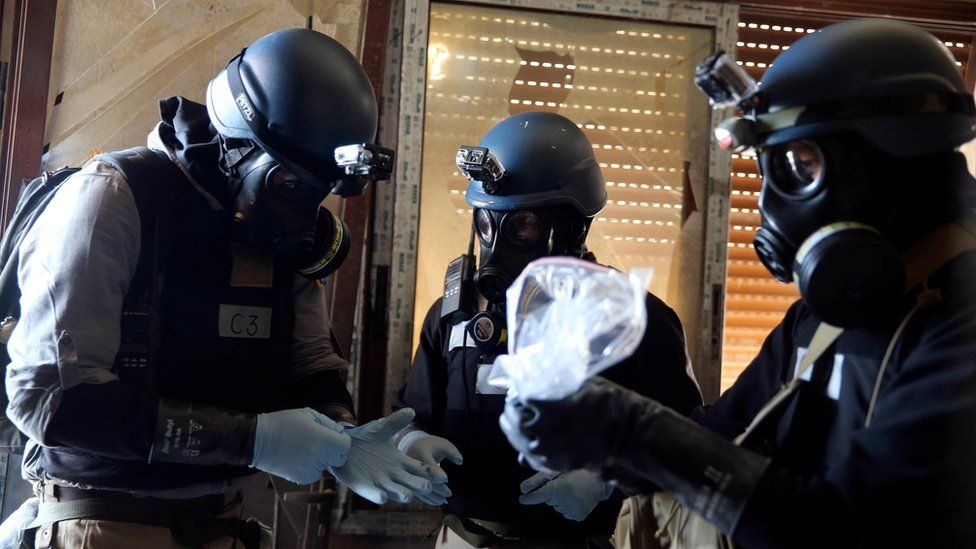Islamic State 'used mustard gas' against peshmerga
- Published

Islamic State (IS) militants fired mortar rounds containing mustard agent at Kurdish peshmerga fighters in northern Iraq, Kurdish officials say.
The Ministry of Peshmerga Affairs said blood samples from about 35 fighters revealed traces of sulphur mustard.
It did not say if any of the peshmerga had died as a result of the attack, or how severely they had been wounded.
Mustard gas can burn skin and cause severe respiratory problems, and is banned under international law.
The exposure took place along the front lines near the northern Iraqi towns of Makhmour and Gwer, the ministry said in a statement.
Roughly 37 mortars were fired in the attack, the statement added, "releasing white smoke and a black liquid".
The ministry called on countries fighting IS to give peshmerga fighters equipment for protection against chemical attacks. Several countries including the United States are already giving military assistance to the Kurdish fighters.
Chlorine gas
This is not the first time IS has been accused of using chemical weapons. In March, Kurdish authorities in Iraq said they had evidence that IS had used chlorine gas.
That allegation, by the Kurdistan Region Security Council, followed similar claims that the group had used low-grade chemical weapons against Iraqi security forces.
The director of the Organisation for the Prohibition of Chemical Weapons expressed "serious concern" in August over the possibility IS was using prohibited chemical weapons.
The UN recently adopted a resolution aimed at identifying those behind chemical weapons attacks in Syria.
IS already has a large arsenal of conventional weapons and military vehicles seized from the Iraqi army, much of it produced by the United States.
Iraq Kurds were the victim of a major chemical weapons attack by the Iraqi military under Saddam Hussein in 1988, which left thousands dead in the city of Halabja.